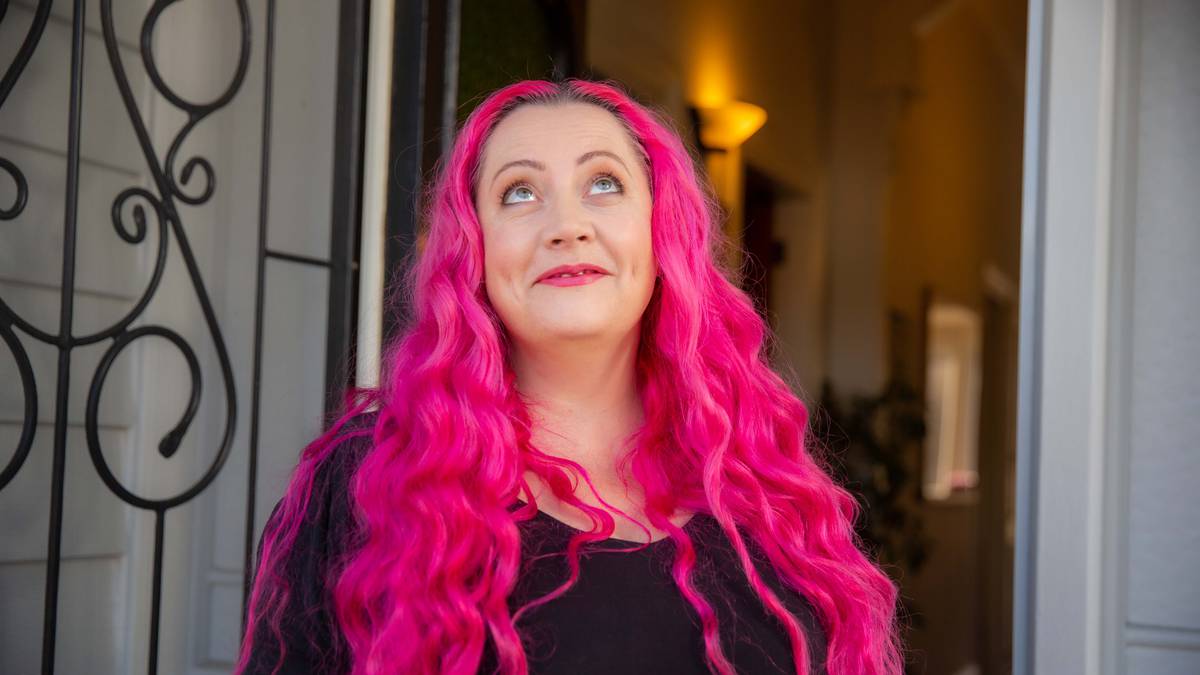Reviewers Greg Bruce and Zanna Gillespie watch Ms. Information, the documentary about microbiologist Siouxsie Wiles.
SHE SAW
I’d like to think things are better now. Watching Ms. Information, a documentary profile of
target=”_blank”>microbiologist and science communicator Dr Siouxsie Wiles, you’re reminded of what a volatile time the height of the Covid pandemic was. People were calling for the hanging of others, families were falling apart, it felt like stoning in the town square was just a viral tweet away.
Throughout 2020 and 2021, Wiles was followed by documentarian Gwen Isaac. It started in early 2020 with a short film for online documentary initiative Loading Docs, and clearly the Massey University College of Creative Arts lecturer couldn’t stop filming as things became more and more explosive and public.
The documentary spends a lot of time with Wiles at home with her family, 15-year-old daughter Eve and husband Stephen. They’re both valuable humanising characters in a film about a person who in many ways comes across as superhuman, not in a “she must be drinking adrenochrome” kind of way but in her perseverance and commitment to the cause in the face of so much hatred. If we received just one of the vicious voicemails or violent threats Siouxsie did, Greg and I would have abandoned all our morals and values and fled the country – if the borders weren’t closed, that is.
Siouxsie smiles a lot and giggles too but underneath the bubbly persona, she’s clearly also a bulldog. Late in the film, she tells an illuminating story about the time she was beaten up in high school in the UK by a group of girls. Where many of us would have gone home and begged our parents not to contact school or god forbid the girls’ parents, Siouxsie went straight to the police. She doesn’t tolerate bullies.
The most unsettling part of the documentary is the audio and footage of those who reviled her. She received vicious voicemails – at least one is played almost in full – was threatened with violence repeatedly and had her home address shared online, with inciting phrases like “you know what to do”. I could’ve done with less footage of Billy TK’s channel. I suspect he’s chuffed to feature so heavily.
Isaac’s style is observational for the most part, with Weston Frizzell being the only interview subjects outside of Wiles’ immediate family. The film therefore is very much about that specific moment in Siouxsie’s and New Zealand’s history and avoids much background into her life story. I would’ve liked a fuller picture of Siouxsie’s life and character, which I think would’ve given more heft to what is at times a slow film.
There is no denying, however, that this is an important record of a difficult time in Aotearoa and the world. It holds a mirror up to this country and shows the ugliness that is brewing just under the surface for many New Zealanders. I like to think we’re doing better now but I’m not that naive. The ugliness is still there, waiting for its next victim.
HE SAW
It is not always easy to know whether you’re living a good life, but one way of knowing you aren’t is if one of your social media posts or voicemails appears in this movie.
At times, this movie feels – as life must have for Siouxsie Wiles at the time – like an unstinting barrage of abuse. It is shocking and disturbing to see and hear the many, many abusive messages she received throughout the pandemic. In both content and extent, it goes far beyond the sort of abuse you might expect to get for doing something bad, like, say, using one of history’s worst mass shootings to manufacture lies for personal political gain. The fact Wiles was subjected to this kind of treatment for trying to save lives is so insane as to border on the comic.
New Zealand’s response to the pandemic was world-leading, but when we look back at that period, we must remember not just all the lives that were saved as a result of the excellent work by people such as Wiles, but the lives that would have been lost had we instead listened to the reckons of those that were manipulated and misled into making a target out of her.
The hate seemed crazy then and seems even crazier now with the benefit of distance, because of what it suggests: that many people had stopped believing Wiles was well-meaning and had instead entered some bizarre realm in which she was actively trying to do harm, possibly because she was working for some evil cabal, possibly led by the devil.
This documentary is important to us as a country and society because it stands as a powerful reminder of how easily so many people can be convinced the truth is untrue and how, once that happens, they use that misguided belief as a basis for hate and a justification for doing harm.
Wiles gave more than 2000 interviews during the pandemic – an astonishing number for anyone, let alone someone who has a fulltime job researching, teaching and running a lab at the country’s leading university. She used these interviews to relentlessly push messages that would save lives. She sought to do good, yet every day her phone was bombarded with messages from humanity’s very worst.
Her stoicism in the face of the hate is the documentary’s most incredible feature. When it finally overcomes her near its end, the only surprise is that it’s taken so long.
Ms. Information is in cinemas now.
This content was originally published here.









